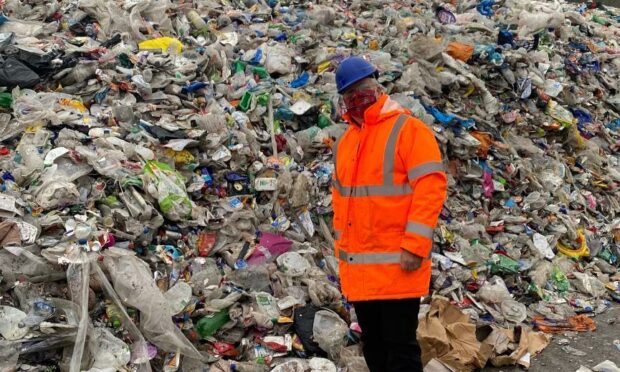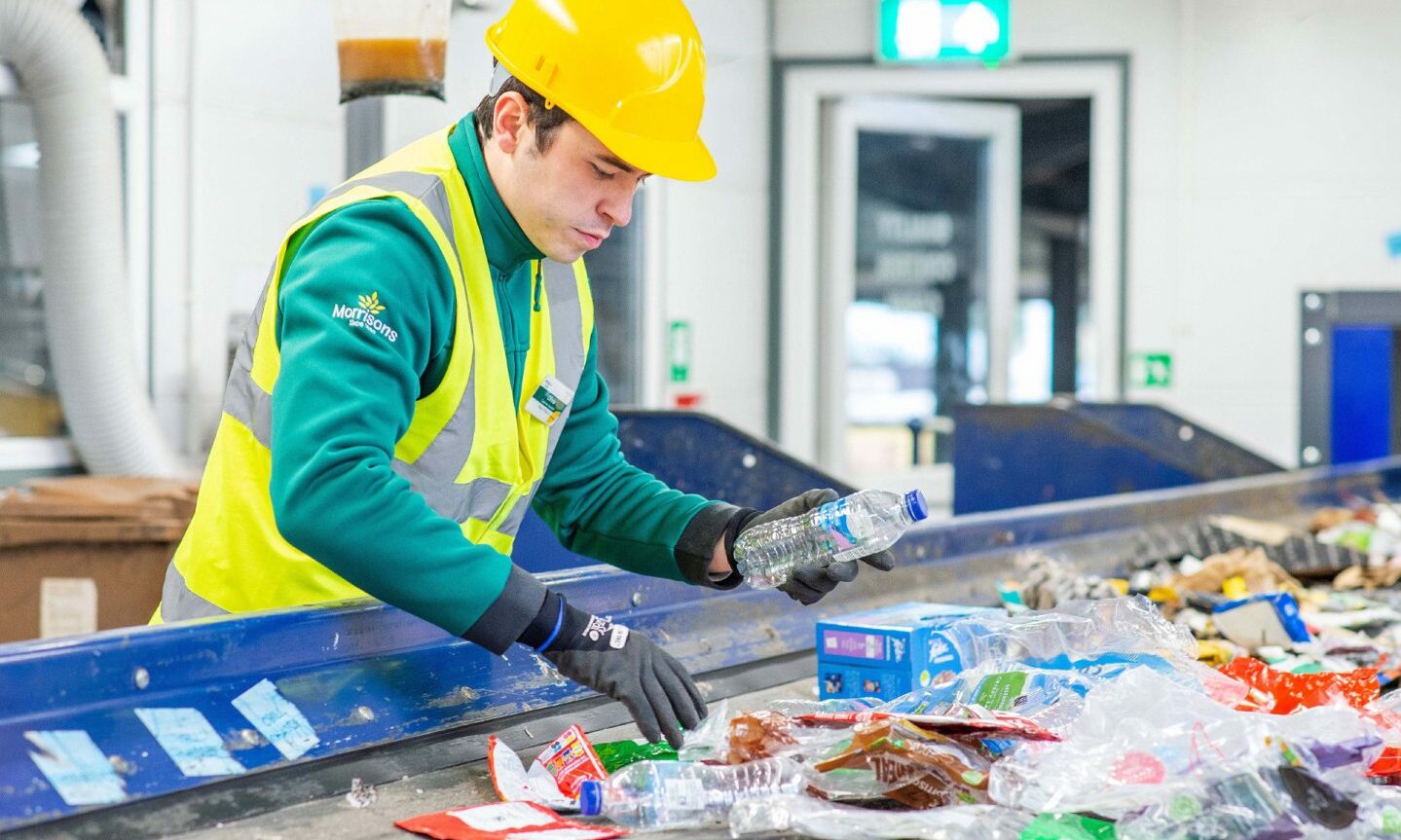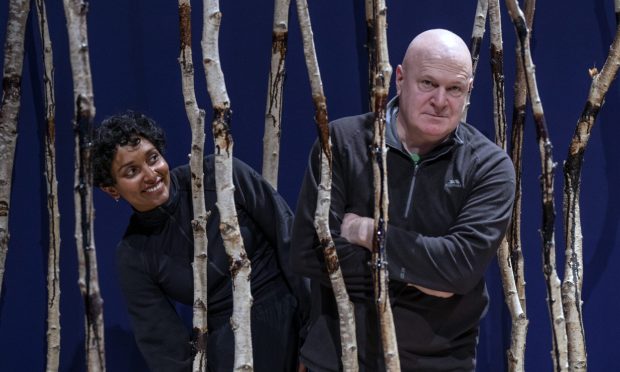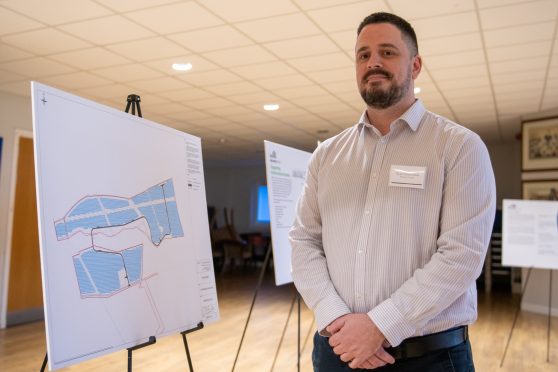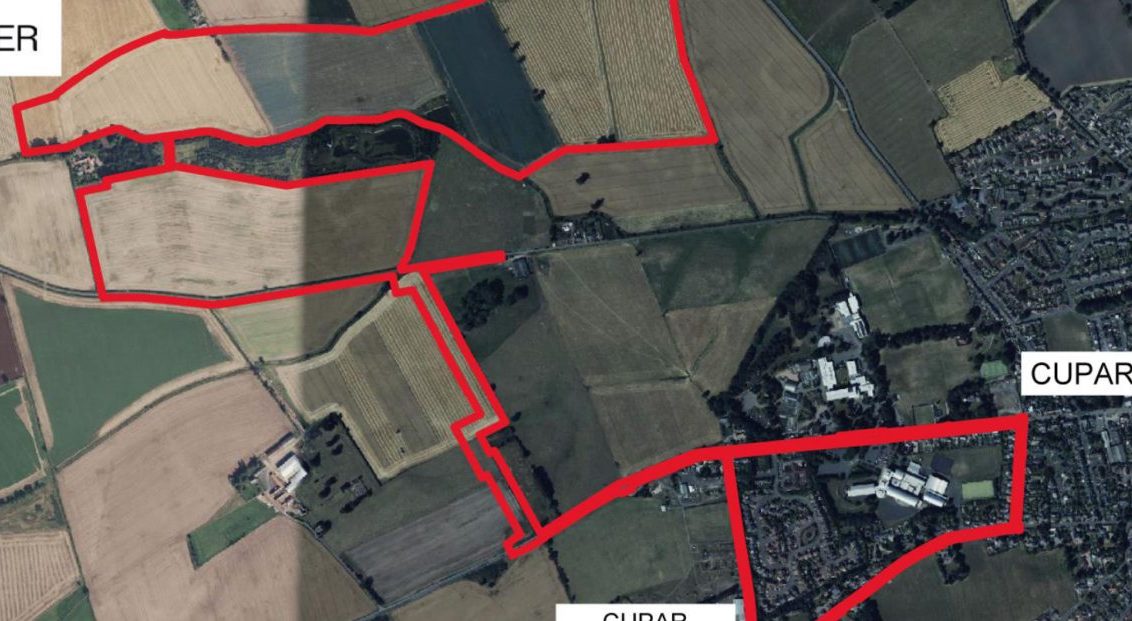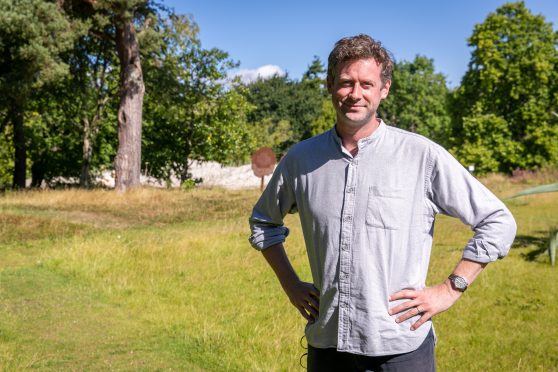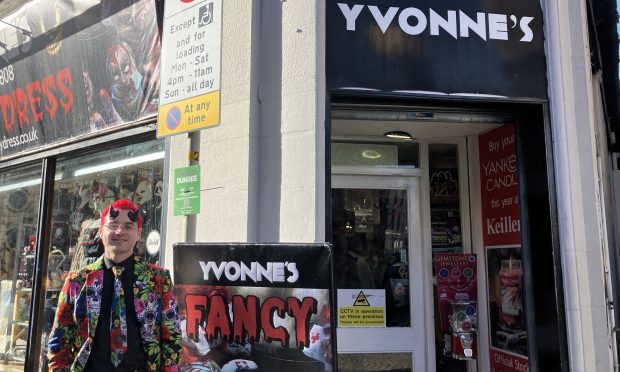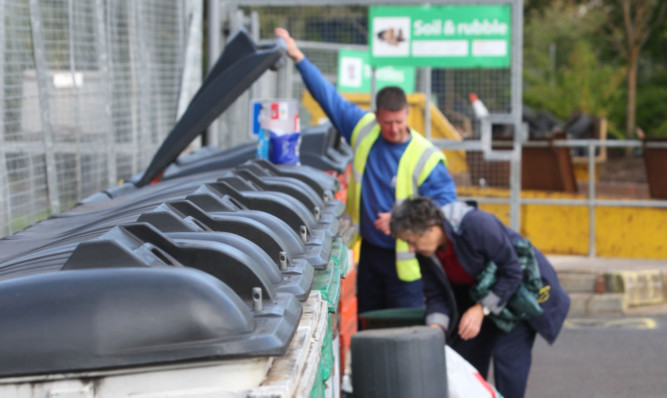Fifers will soon become the first people in Scotland who can throw all their plastic waste into the recycling bin.
Workers at firm Yes Recycling and the council’s arms length waste body Cireco have developed a process for recycling flexible plastics such as bread bags and other food packaging.
The change, scheduled to come in this spring, will make recycling easier for thousands of Fifers and could boost recycling rates by cutting down on contamination in the Kingdom’s green plastics bins.
The lack of clarity around what can and cannot be recycled has confused and upset many residents across Scotland and contributed to hefty fines for contaminated waste.
Glenrothes ‘leads the world’ in plastics recycling
Omer Kutluoglu is director of Buckinghamshire-based firm Yes Recycling. His company is in the process of completing work on a new recycling centre in Whitehill Industrial Estate in Glenrothes.
The company will take Fife residents’ 3-4,000 tonnes of soft plastic waste and transform it into eco-sheet. Builders use eco-sheet as an alternative to plywood.
Omer said: “Fife Council will be the first place in the world, I think, where residents can put every bit of plastic into their bin and it will all be recycled here in Fife.
“Other councils up and down the country are not doing that.”
He said most plastic food packaging is made from special kinds of plastic that are difficult and expensive to recycle. But that plastic, he argued, performs a vital role.
“There are lots of people who say let’s ditch plastic.
“But if we ditched plastic then there would be a huge amount of wastage. People need plastic and they need plastic to do its job.”
Plastic recycling breakthrough the result of 12 years of research
Cireco workers will sort the plastic waste at their state-of-the-art facility in Dunfermline before moving the flexible plastics to Glenrothes for processing.
Omer added: “What happens is the councils negotiate with people who just want to take the valuable stuff and burn the rest. But in Fife, it’s been brilliant. We’ve devised a long term solution.
“From our side that’s the culmination of twelve years of research and development, and tens and tens of millions of pounds spent on getting to this stage.”
Wishcycling – yes, that is now a thing
Robin Baird is chief executive officer of Cireco Scotland.
He said “significant volumes” of currently unrecyclable waste end up in the Kingdom’s recycling bins every year.
That is despite communication campaigns and other awareness raising initiatives.
He said: “There are two forms of contamination. There is malicious contamination, like nappies. People know you don’t put nappies in the recycling.
“Other people think they’re doing the right thing. We want to encourage that. Projects like flexible plastics mean that people can make decisions in confidence.”
Well-meaning residents putting non-recyclables in the recycling bin has become so common it has even coined its own term – wishcycling.
Supermarket giant Morrisons among Fife plant’s backers
Managers at supermarket giant Morrisons have already invested millions in the flexible plastic recycling process.
The worlds largest food and drink company Nestlé, Yes Recycling’s first investor, also provided a pre-investment of £1.65 million.
Circular economy agency Zero Waste Scotland has also supported the technology with two large grants.
One of these has supported an “optical sorter” machine, which will be used to sift the plastic waste at Cireco’s Dunfermline base.
Liberal Democrat Tay Bridgehead councillor Jonny Tepp said “contaminant waste” currently makes up about 20% of all the recycling collected. He suggested the new process could lead to large financial savings
“We are of delighted to hear of these developments. This is not a new problem.
“It looks as though the known savings will pay for the sorter in five years.
“Because more will be collected, the unknown impact on the amount of general waste going to landfill could also be significant, which would generate further savings.”
David Gunn is recycling improvement fund manager at Zero Waste Scotland.
He said this is the first project in Scotland of its kind.
“We hope to see it replicated. We look forward to working with organisations across the country to bring forward more projects like this, which will help meet recycling and net zero targets.”
